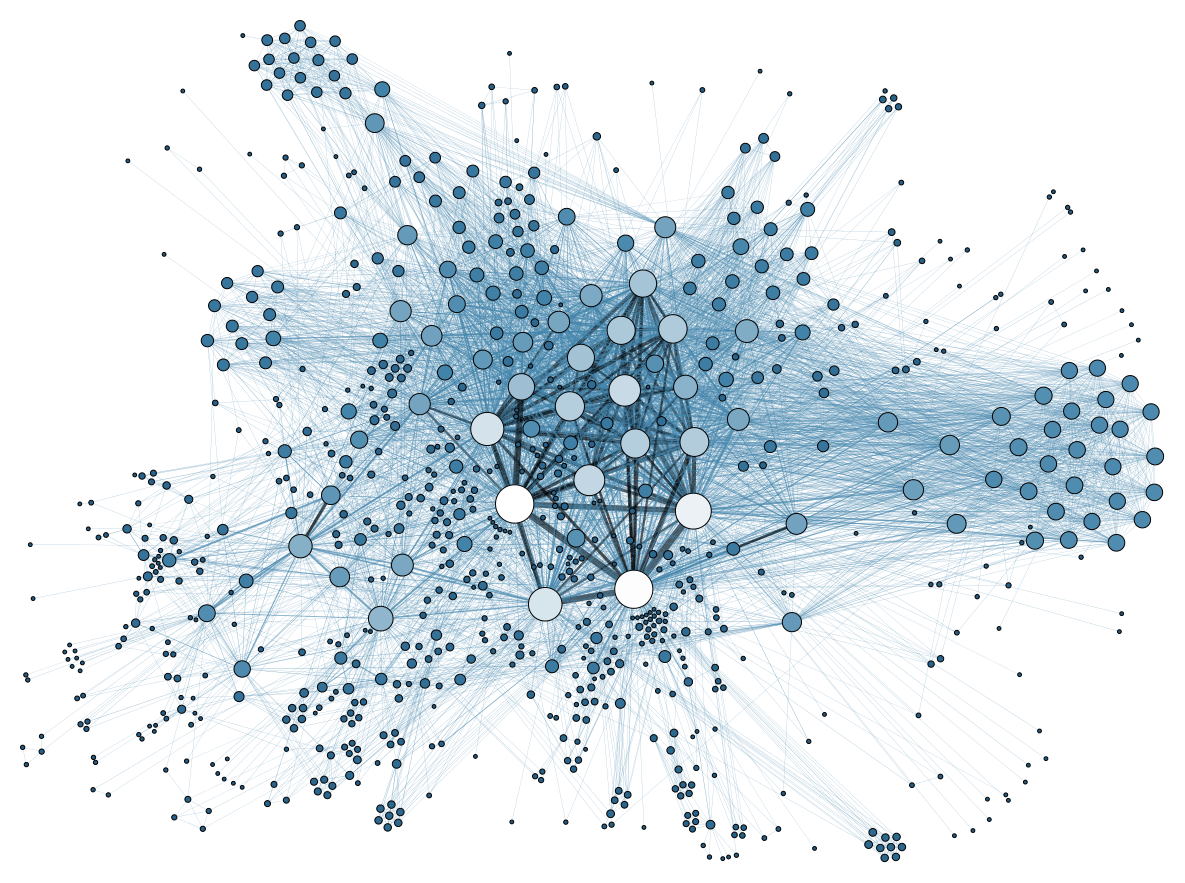I once created a brand new social network called the Socknet. Like email, it was distributed; anyone could open their own site on the Socknet and have full control of it.
It went exactly nowhere, and I let all the domains expire five years later. It was an entirely predictable failure, but I learned a few things.
When I had done all the grunt work and was wondering where to go next (and where to find the time), the Diaspora project launched their Kickstarter with a very similar objective. Today Diaspora seems to have reached the end of its rope.
And I have some thoughts.
My Major Malfunction
 Oh, I forgot to invite anyone.
Oh, I forgot to invite anyone.
The major mistake I made, and which most similar projects make, is to attempt to solve the problem before gathering a community. (The second mistake I made was to never gather a community at all.)
This kind of endeavor can only be accomplished by a major push from lots of people.
Diaspora got a good start. They got a lot of people involved financially before getting started in earnest. I’m not familiar enough with that project to know how involved in the creation process the community was.
This kind of project has to have a distributed start with a lot of input from a lot of people. In fact, it needs more input than is actually helpful, in order to keep people invested. And it needs a good leader to wrangle all these people.
I didn’t do any of that. I treated my social network like a toy I was building. I didn’t have any of the leadership skills needed for a project like this.
Have A Clear Objective
 We have 203 objectives, so we have 101 ½ social networks.
We have 203 objectives, so we have 101 ½ social networks.
Other than an army of contributors and a leader, a project like this must have a clear and attractive objective. For myself and for the creators of Diaspora, the objective was to take back our social network. We saw how important Facebook and Twitter would continue to be into the future. And we wanted to give power to the people.
But the trouble is, most people aren’t concerned with idealism of this sort. Each person on earth picks their own thing to be idealistic about. So most people don’t pick “controlling my own messaging system”.
Diaspora made a big deal of their intention to solve Facebook’s most recent mistake at the time: privacy. News articles had recently made a big deal about privacy failures in Facebook. Diaspora saw the opportunity to promise a solution. It was successful enough to fund their Kickstarter.
But it wasn’t enough to grow into a sustainable system. The objective wasn’t universally appealing. It wasn’t even very appealing to the people who claimed to be interested.
Find A Niche
_04.jpg) Socknet was niche. Too niche. This is me, being the only person on Socknet.
Socknet was niche. Too niche. This is me, being the only person on Socknet.
What each project should have looked for was a niche. A small community must rally around the network and call it theirs. Twitter courted the tech community. Facebook won over the college community.
These limited communities provided the beta testers necessary to get all the kinks out of those services. Facebook and Twitter were able to create an impression about what they were each for by targeting the interests of those limited audiences. Then they opened the gates.
A project like Socknet or Diaspora needs all the efforts of a core community to push it, but it also needs an audience that is both dedicated and limited. Without focus, it cannot cut its teeth on anything. Without focus, the audience doesn’t even know why they are suppose to use this service.
Once you can sell your audience on your main focus, you can start to amass them. And when they are all there, they can start to attract their friends, even though they don’t fit the demographic quite as well. The network’s focus can be relaxed at that point. It has reached critical mass.
This is also why Google Wave and Google Plus were big flops. They tried to be everything to everyone and so they could neither accomplish major goals nor define themselves to visitors.
What About Email?
_and_Dennis_Ritchie_at_PDP-11_(2876612463).jpg) Hint: Computers looked like this when email was invented.
Hint: Computers looked like this when email was invented.
Email is still the most vital service available on the Internet, and it has all the features we were trying to add to social networks.
Email is a social network of a sort. I’m stretching the term here, but it has the essential features: contacts and messages.
So why did email do so well at being the kind of technology we are having trouble creating now?
When email was created, each mainframe machine was separate from the others and had its own email so people on that machine could communicate. They were later stitched together via data lines between systems. So it had to be distributed.
There was also one major feature of the technology of the time that lead each player to want to control their own email. It was crap.
It was absurd to think, in the mid-1970’s, that everyone would use one system somewhere to handle all of their messaging needs.
What if that system was down? What if it was full? Who maintains this system? What do they get out of it? Do we pay them?
Instead of trying to make one email system for everyone, the community got together and came up with a standard so different mainframes could send each other messages.
There was some back and forth and finally they settled on what these computers would say to each other. Then people changed existing email programs to fit the specifications they had come up with.
So email was distributed because it had to be.
The Necessity Is Gone
 Users feel a magnetic pull to the best service, not to a panoply of services offering the same thing.
Users feel a magnetic pull to the best service, not to a panoply of services offering the same thing.
That’s a tall order at this late date. If the idea of email was invented today, someone would sell it. There would be one big company selling the idea of sending messages to your office mates and other businesses. There would be competitors, but they would mostly die away because the biggest one refused to interoperate.
But the other side of the coin would be the way email would have ramped up. Without the need to interoperate, there’s a lot more room for improvement.
Suddenly you’d be able to broadcast your current status to anyone interested. And you’d be able to join special groups and choose certain businesses to get updates from. And you’d be able to make messages visible to everyone instead of just specific recipients. And hash tag them.
All these innovations would be the product of the capitalist machine trying to keep the thing relevant and attractive to more and more people.
And you’ve probably guessed that I’m saying if email were invented now, it would turn into social networks. Not into a distributed and free system that has barely changed in 40 years.
If social networks can be reworked as a distributed system that isn’t owned by a single corporation, then email may be the model. But distributing the social network isn’t the easiest way to do it now. So we can’t learn much from the way email was created.
Is The Dream Dead?
I’m not saying a distributed social network can’t be done. I’m not interested in excuses. I’m saying it can be done. The people can own their own social network. Or at least, more players can be involved.
I’m not the guy for the job of revolutionizing the social networks. But somewhere there is just such a person. And if you are that person or you know that person, maybe you should try this. I’ve laid out some major points I think you’d have to hit. Heck, maybe Diaspora is still viable, if it has good leadership and can find an attractive niche objective.
For my part, I think there are simpler things I can revolutionize.
The Time I Didn't Revolutionize Social Networkinghttps://t.co/bCSUVOvSQm pic.twitter.com/pbyHLVErUY
— Dan Kuck-Alvarez (@dankuck) March 6, 2017
Page image by m01229.

 ,
, 